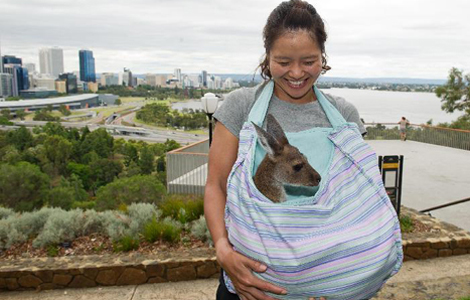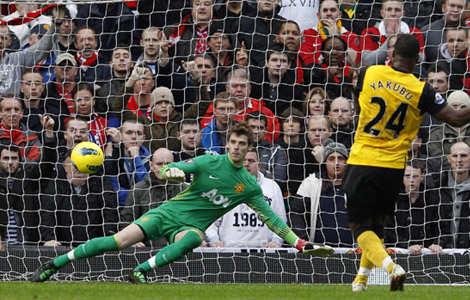Company defies 'fake foreign brand' label
Updated: 2012-01-04 08:11
By Zhou Wenting (China Daily)
|
|||||||||||
BEIJING - A senior manager of a Shanghai-based food company said all of its milk products are manufactured and imported from New Zealand - even though they are only sold in China.
The comment came in response to condemnation of the milk being "a fake foreign brand".
"We are only targeting the Chinese market at present. Our corporate philosophy is to import the world's high-quality farm products for Chinese consumers," Lin Jun, director of e-commerce business of Shanghai Nouriz Dairy Co, told China Daily on Tuesday.
An unnamed Internet user told Xinhua News Agency last week that Nouriz milk powder, which is claimed by the company as being imported from New Zealand and is popular in China, cannot be found in supermarkets or online sales platforms in New Zealand, and locals have not heard of the brand.
Nouriz Investment Holdings, which is registered in the Cayman Islands, on Saturday put a notice on the website of its Shanghai subsidiary, alleging all of its baby formula comes from New Zealand.
"We have a panel of experts in the Auckland-based New Zealand subsidiary to work on research and development as well as quality control, and we authorize Sutton Group (a New Zealand company within customized services to food and dairy industries) to produce our milk powder, and GMP (a pharmaceutical manufacturer) to produce other food supplement products," reads the statement.
"Sutton is an industry giant in New Zealand. It also supplies baby formula for Wyeth," Lin said.
He said the English trademark was registered in New Zealand in 2006, the same time as the Chinese trademark was registered on the Chinese mainland. He added that the Shanghai branch is in charge of sales of its products in China, mainly through maternal and infant product stores and online sales channels.
Lin declined to reveal sales figures. More than 14,000 search results are found on China's e-commerce site Taobao, and the company's main products, such as baby formulas and colostrums, all have sales of more than 100 pieces a month in its flagship store on the website.
This is not the first time that "foreign" milk powder has been entangled in such a case. Heitiki, a milk powder brand claimed by its Shenzhen-based distributor as imported and "a top brand" in New Zealand, was discovered in July to have been registered by Chinese people in New Zealand.
Experts estimated 2011 might be the first year when more than half of the milk powder sold on the Chinese mainland is foreign, after domestic and foreign producers split the market 50-50 in 2010.
"Consumers turned to foreign brands after 2008 (when the melamine-contaminated baby formula scandal exploded), especially when it comes to baby formulas. That's why some Chinese people have sniffed out a business opportunity," said Wang Dingmian, chairman of the Guangzhou Dairy Association.
Zhang Qing, father of a 2-year-old girl, said he does not know any young parents who feed their children domestic baby formulas.
"Parents are trying their best to afford imported milk powder for their children. A string of domestic dairy scandals has hurt consumers a lot," said the 34-year-old Shanghai resident.
Now it seems that parents should also shun those who claim themselves as imports, he said. "The best way is to choose an old brand."
Hot Topics
Kim Jong-il, Mengniu, train crash probe, Vaclav Havel, New Year, coast guard death, Internet security, Mekong River, Strait of Hormuz, economic work conference
Editor's Picks

|

|

|

|

|

|







